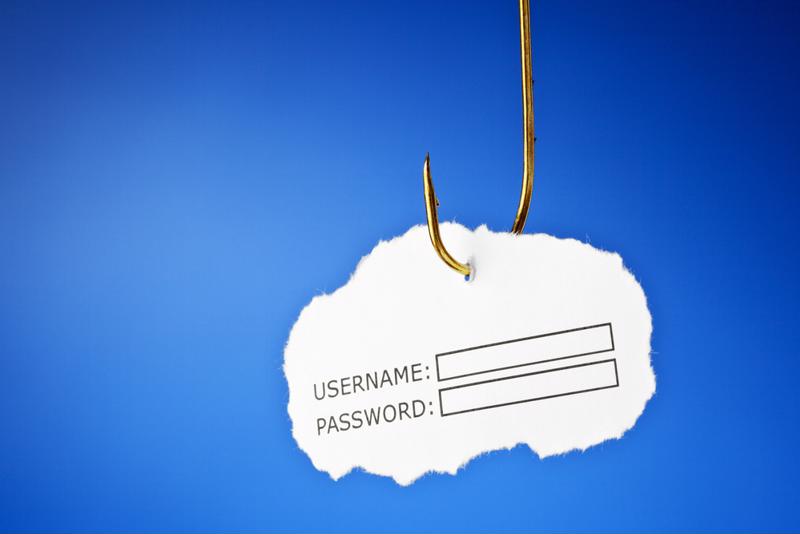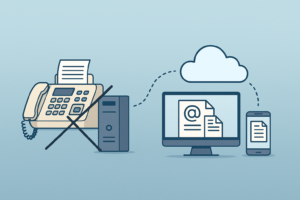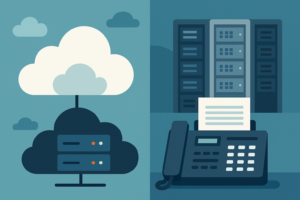If there’s one thing this new technologically advanced age has taught society, it’s that convenience is king. Modern advances have allowed for giant leaps in human comfort and ease of living, chief among them being the ability to communicate like never before.
Seemingly old-fashioned techniques like fax solutions or physically sending a handwritten letter have been pushed aside for the convenience of digital communication avenues such as email. And while many people tend to focus on the ease at which email facilitates discussion, there is one thing they usually forget about: security. Which begs the question, how secure is email?
Email’s nowhere near as secure as people think
Although email is obviously convenient, the comfort of this technology has lulled people into a false sense of security. The Internet is full of malicious individuals who would like nothing more than to steal your information and money, and email is one of the easiest ways they can gain access to you and your bank account.
“Despite their nefarious nature, hackers are far from lazy.”
Despite their nefarious nature, hackers are far from lazy. Many of them are working night and day to do everything in their power to take what’s yours. A study conducted by Symantec about the state of cybersecurity found that in 2014 alone, hackers had created 317 million new pieces of malware in order to exploit their victims.
This alarmingly high number shows the determination hackers have toward stealing your information. All it takes is one click of a link in a seemingly innocent email and the hacker has everything he needs to own your computer.
However, malware by itself isn’t really the thing email users need to worry about. Spear phishing has long been the reigning king of methods hackers use to gain access to your data via email. Basically, a phishing campaign is where a malicious individual will attempt to gain access to private information by lying about being a reputable person.
An example of this would be a hacker sending an email to you stating that your bank account has been hacked. This person may even use an email that looks like it has been registered to your bank, and will say he is an administrator trying to verify that you are the real account holder. They will ask you what your account number and password are, hoping you’ll fall for it and give them access to your account.
 Phishing is an easy way for hackers to get your personal information.
Phishing is an easy way for hackers to get your personal information.Basically, this scheme is a numbers game. Get Cyber Safe, a Canadian governmental cybersecurity initiative, has stated that while around 156 million phishing emails are sent each day, only 15 million make it through spam filters. Out of those, 8 million are opened and 80,000 people fall for the scheme every day and give their information away.
With all of these statistics, it’s quite obvious that email simply is not a viable option for sending and receiving important documents.
Fax over IP is often the answer
Fax over IP, or FoIP, has often been seen as the solution to email security woes. Due to the fact that FoIP doesn’t require you to click anything, it eliminates the risk of someone in the chain of information clicking a piece of malware that will give hackers access to company information.
Phishing is also eliminated, as hackers generally avoid faxes in favor of the convenience email affords them in their malicious schemes.
If you’d like to see what FoIP can do for your company, make sure to check out the fax over Internet services provided by FaxCore. For more than 10 years, FaxCore has been making sure that critical documents get where they need to go, without the security hassles of traditional email.
Enhance enterprise communication, collaboration and compliance efforts with a proven FoIP solution from FaxCore. Contact FaxCore today to learn more about their ‘Partly-Cloudy’ fax solutions.




